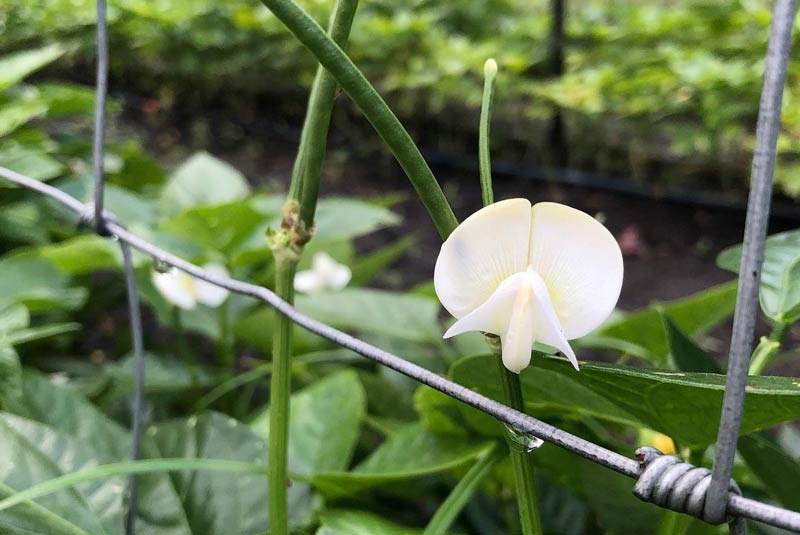The Farm at Middleton Place uses regenerative practices that go beyond organic. With a working knowledge of historic agricultural methods, such as using livestock and plant waste to increase soil fertility, The Farm focuses on a full-circle approach to production.
Visit the Restaurant
Spent hay from our heritage livestock breeds is used to enrich the soil and cultivate plants to create flavorful dishes in the Middleton Place Restaurant. Perennial and annual flowers make a beautiful tablescape at the restaurant and other events and invite pollinators and beneficial insects to The Farm, which helps eliminate the need for harmful pesticides. In addition, crop rotation, cover crops, and reduced tilling strategies help create biodiversity in the soil, creating a stronger, healthier, better-tasting plant that doesn't need the assistance of synthetic chemicals.
Located less than 800 yards from the Middleton Place Restaurant is a small garden plot and a representation of The Farm at Middleton Place. This garden plot provides a daily selection of fresh produce that coincides with the restaurant's seasonal menu. Executive Chef, Chris Lukic, works closely with the Farm manager, Jamie Yurgartis, to choose varieties of herbs, vegetables, and flowers that help to create an exceptional dining experience.


Our annual crops are rotated each season in order to cut down on the presence of various plant diseases and to reduce depletion of nutrition in the soil. Some of the growing methods we use date back to practices used by Native Americans and the enslaved population of the Southeast, before there were synthetic chemicals and heavy machinery being used in farming. By combining the tried and true ways of our ancestors with modern practices, we feel that our approach to agriculture is one that will responsibly feed our community for years to come.